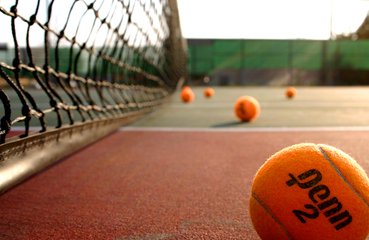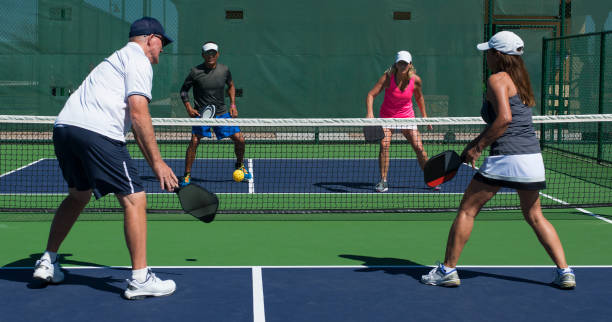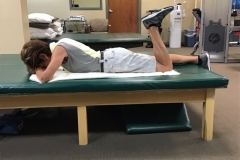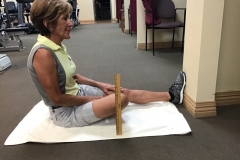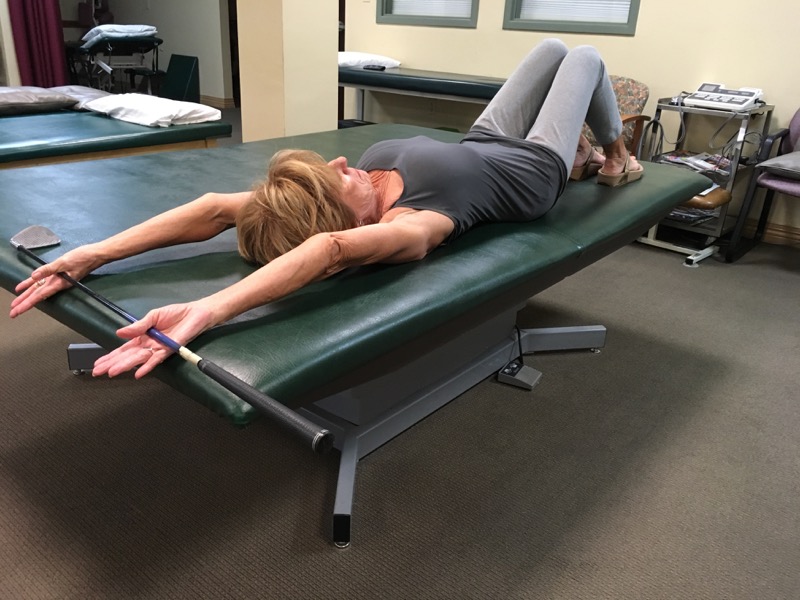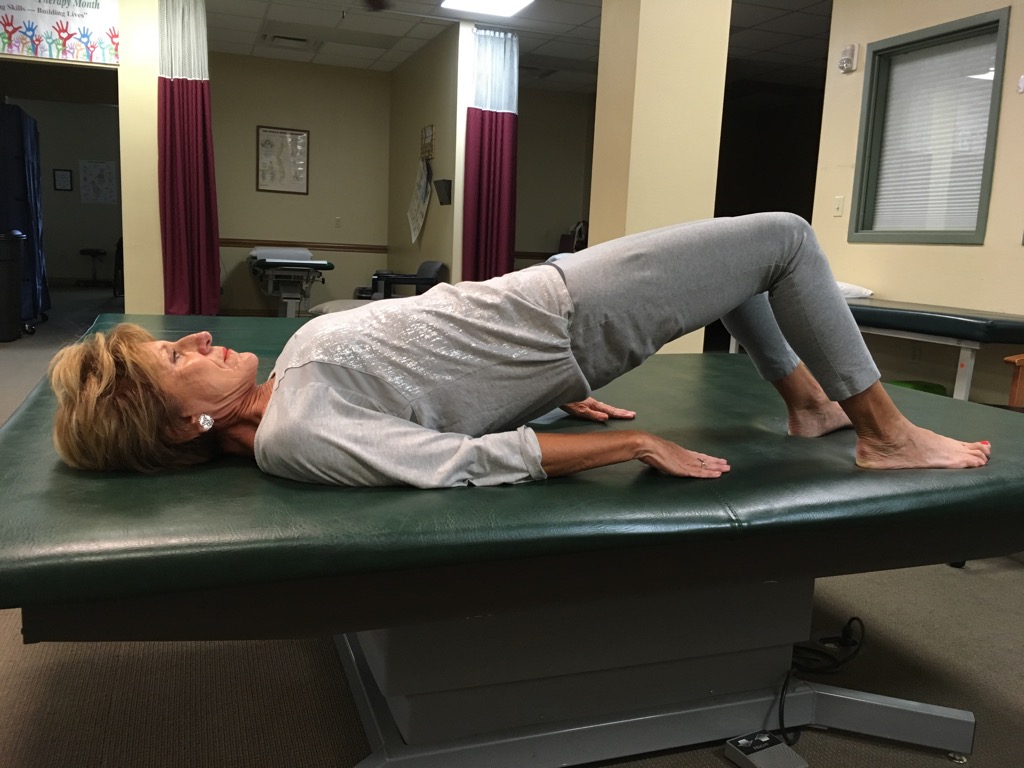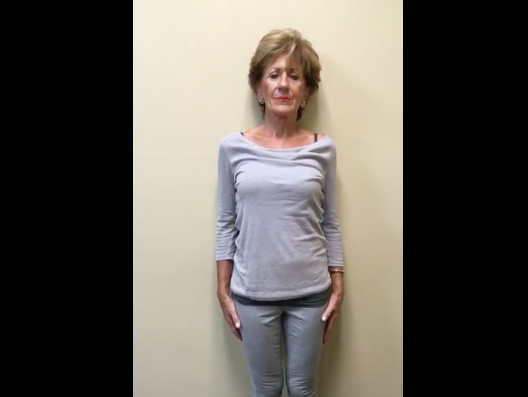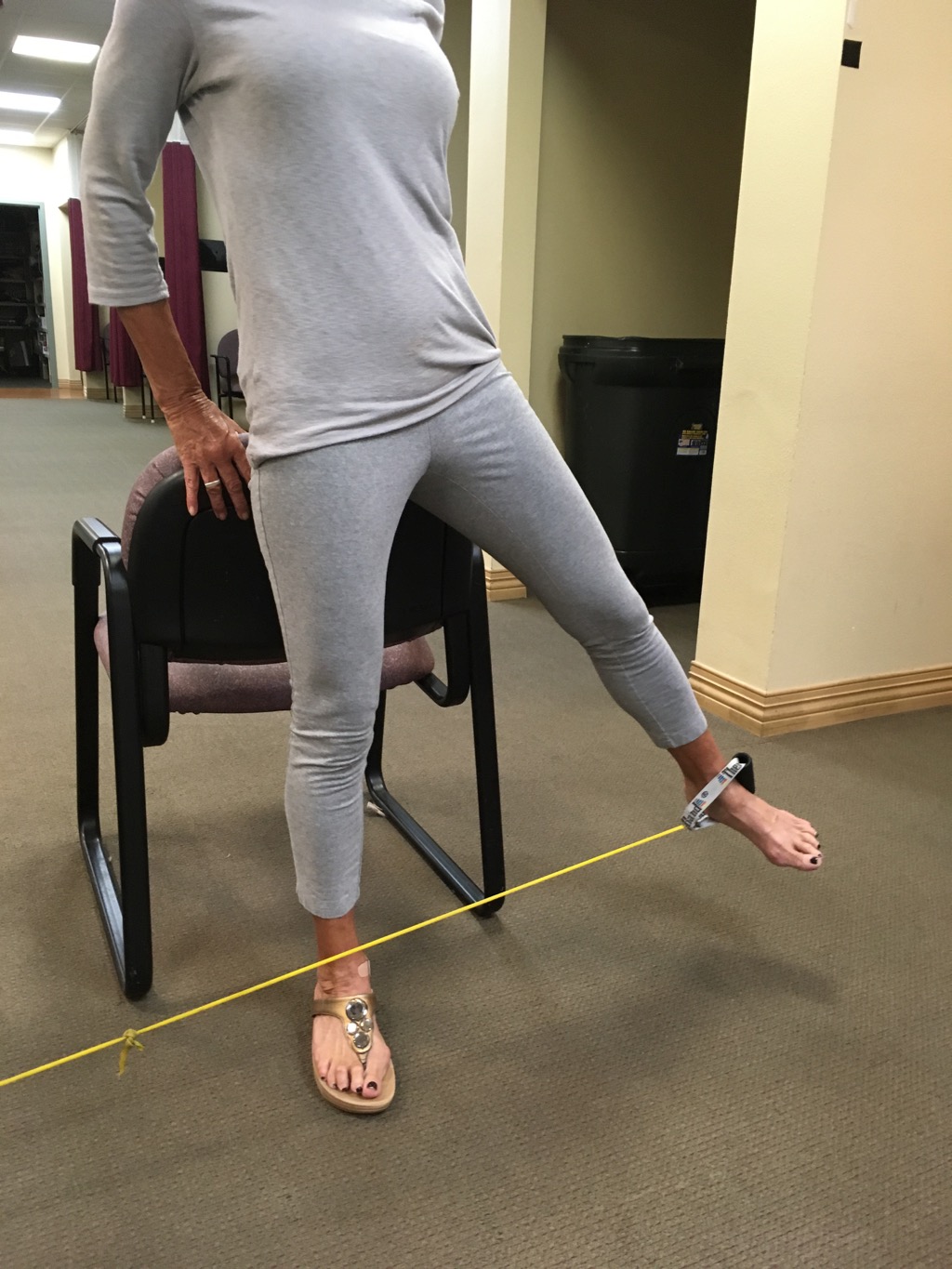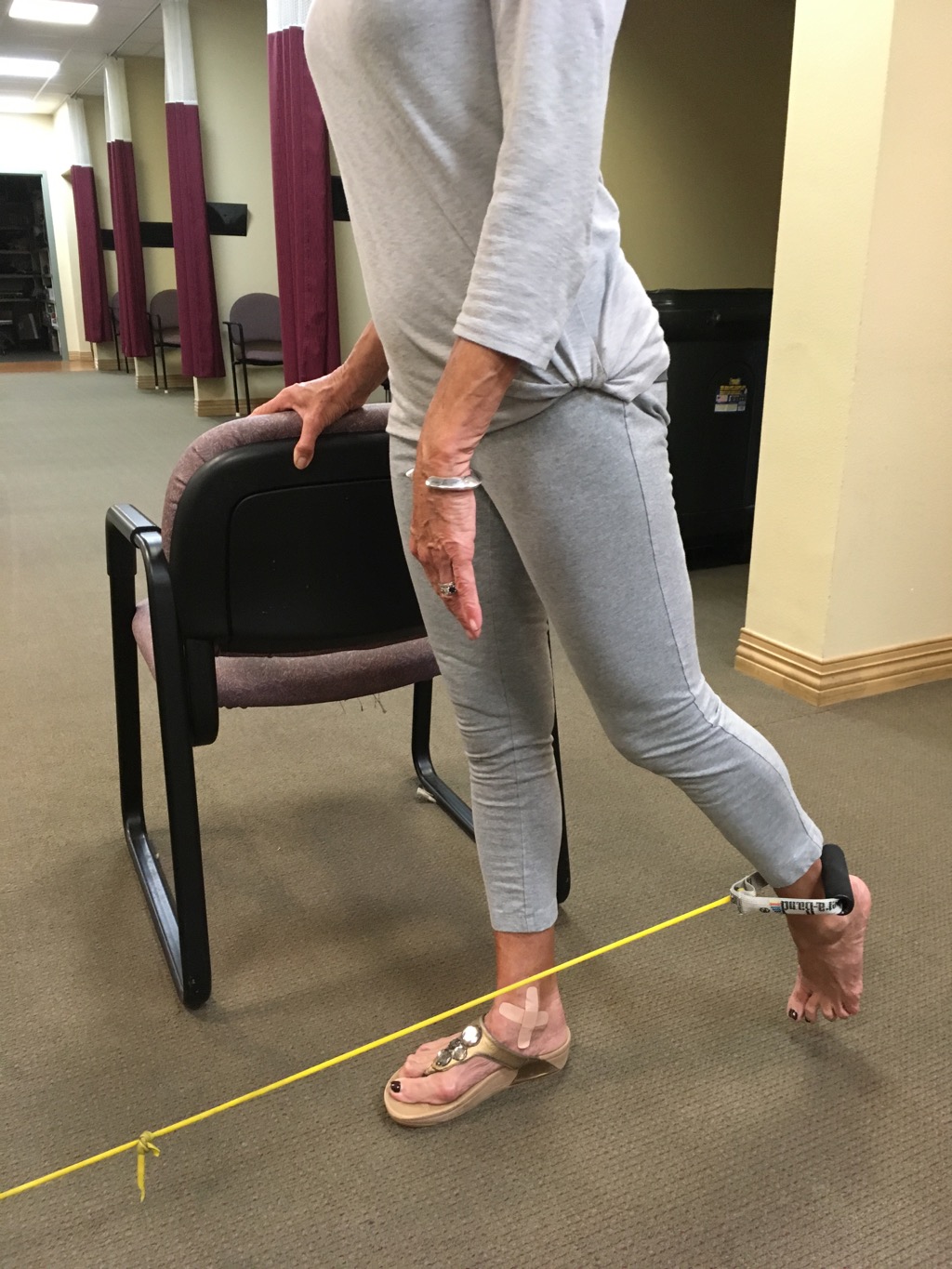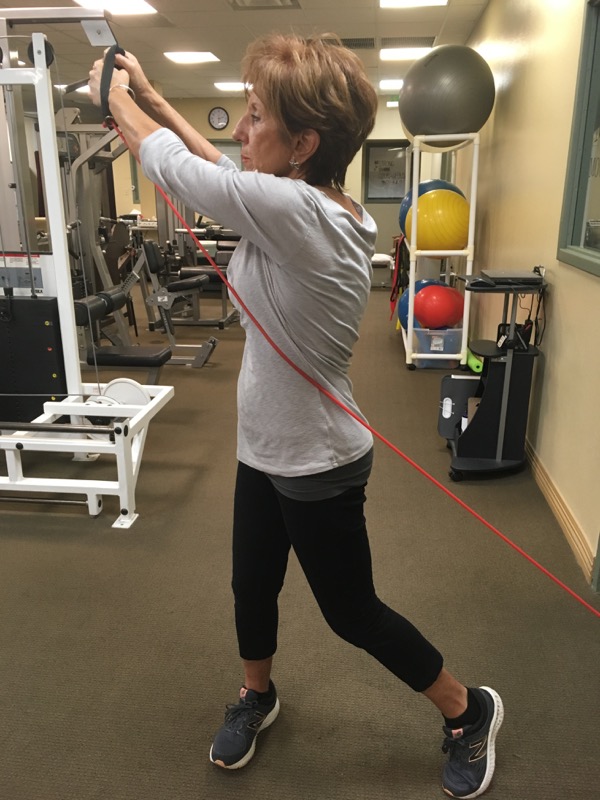To reduce the risk of injuries with pickelball/tennis one needs to have flexibility and strength within normal limits. Having pain when playing is an indication there is some limitation. Playing through the pain generally does not resolve the problem. One needs to determine what is causing the pain. Reduced shoulder flexibility and rotation cuff strength deficits can cause shoulder and upper back pain. Mid and low back pain denotes reduced trunk mobility and reduced core strength. Knee pain is usually due to reduced hip and lower extremity mobility and strength deficits.
RECOMMEND following the exercise program below for the problem you may have for 30 days.
Also, limit your recreational playing to alternate days. If pain increases during the activity and subsides when not playing limit playing to twice weekly.
If pain increases during the activity and continues recommend stopping the activity for two weeks and continue with the exercises.
Try returning to the recreational activity. If pain unchanged recommend having an evaluation completed by health professional, preferred a physical therapist. They can determine the cause of the problem They can assist you in returning to your activity with reduced pain.
Research has shown that playing with the pain, generally will result in increased pain making it difficult to participate in the activity safely, due to your body needing to make adjustments for the pain, along with longer duration of pain with activity.
INITIALLY REFER TO TESTING BODY FLEXIBILITY and STRENGTH SECTION.
Test the area where there is difficulty.
If the test reveals deficits in shoulders refer to the section on COMMON SHOULDER DISORDERS and EXERCISES under Pilates plus Exercise Programs. Follow the instructions for lengthening and strengthening exercises. Apply ice to the area of pain after exercising for 15 minutes.
If pain is located in low back and test results indicate limited flexibility in trunk/low back refer to the LOW BACK EXERCISES under Pilates plus Exercise Programs with emphasis on core strengthening.
If discomfort in knee, refer to KNEE EXERCISES AND TREATMENT under Pilates plus exercise programs. Also consider a knee strength test with Isokinetic equipment . Apply ice following the exercises for 15 minutes.
As pain and discomfort subsides recommend strengthening program with emphasis on trunk rotation. Decrease the previous exercises to twice weekly. Pickelball and tennis is a rotational activity similar to golf. Recommend going to LEVEL 2 GOLF EXERCISES and LEVEL 3 SPORTS SPECIFIC EXERCISES FOR GOLFERS under Pilates plus exercise programs. Initiate the exercises twice weekly for 30 days ,then weekly for 30 days.
After 60 days initiate exercise program at fitness facility 1 to 2x weekly replacing the golf exercises. Go to WEIGHT RESISTANCE EXERCISE AT FITNESS FACILITY and initiate the exercises on the cable machine .
PROPER HYDRATION CRITICAL WHEN PARTICIPATING IN RECREATION ACTIVITIES, ESPECIALLY WHEN OUT DOORS!!
Dehydration occurs when you lose more water via sweat and urine than you’ve taken in, can be especially dangerous for older adults. A lack of sufficient fluid in the body can temporarily cause confusion and put you at risk for falls.
Dehydration can be challenging to detect as we age because classic signs such as dry mouth, thirst, fatigue and skin that doesn’t spring back quickly when pinched can also be caused by other factors. A 2015 review of research by the independent Cochrane Collaboration found that there was no one reliable test for dehydration.
How much – and what – should you drink? There is really no rule, that’s appropriate, can vary a great bit from person to person. The heavier, taller, and more active you are the more fluids you need to take in to cover your losses.
Drink before you feel parched. By the time you feel thirsty, you might be dehydrated.
Sip small amounts throughout the day. Carrying a water bottle with you can help remind you to drink.
Include other beverages and foods. All beverages(other than alcoholic drinks) will hydrate you, and that includes caffeinated drinks. Coffee and tea are mild diuretics, they can cause you to urinate more. But they will add more to your liquid stores than you will lose. Soups, fruits and vegetables are also good sources of liquid.
Take your health into consideration. Ask your doctor whether medical conditions you have or medications you take affect your hydration needs.
A 2016 study in the Annals of Family Medicine found that obese people were more likely to be inadequately hydrated as well. Having dementia, Parkinson’s disease or a stroke can also increase the chance of dehydration.
Florida with its high temps/humidity increase the risk for all to be dehydrated…Play it safe…stay hydrated.
